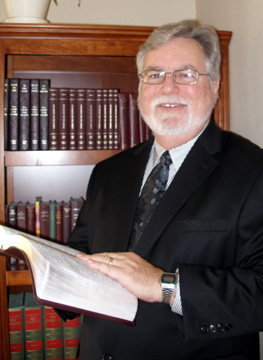
Stephen
Terry, Director

Jesus
and Those in Need
Commentary
for the August 17, 2019 Sabbath School Lesson
 "By this time it
was late in the day, so his disciples came to him. 'This is a remote place,'
they said, 'and it's already very late. Send the people away so that they can
go to the surrounding countryside and villages and buy themselves something to
eat.'"
"By this time it
was late in the day, so his disciples came to him. 'This is a remote place,'
they said, 'and it's already very late. Send the people away so that they can
go to the surrounding countryside and villages and buy themselves something to
eat.'"
"But he answered, 'You give them something to eat.'"
"They said to him, 'That would take more than half a
year's wages! Are we to go and spend that much on bread and give it to them to
eat?'"
"'How many loaves do you have?' he asked. 'Go and see.'"
"When they found out, they said, 'Five--and two fish.'"
"Then Jesus directed them to have all the people sit
down in groups on the green grass. So they sat down in groups of hundreds and
fifties. Taking the five loaves and the two fish and looking up to heaven, he
gave thanks and broke the loaves. Then he gave them to his disciples to
distribute to the people. He also divided the two fish among them all. They all
ate and were satisfied, and the disciples picked up twelve basketfuls of broken
pieces of bread and fish. The number of the men who had eaten was five
thousand." Mark 6:35-44, NIV
One of the paradoxes of modern Christianity is how
little regard the institutional churches and some individual Christians have
for the needs of others. We often act as though we are blessed with salvation because
of our merit rather than the grace of God. Then based on that false assumption,
we presume that others, for various reasons such as economic class, gender,
race, or disability, do not deserve the merit we have obtained and must be relegated
to an entirely different class of existence without the favor and blessings we
may enjoy. We witness this even at the ubiquitous church potlucks where tables
are often segregated by class and race. Every church seems to have the table
where the undesirables congregate, a table the powerful and influential avoid
at all costs for fear of compromising their standing within the church.
Usually, it is off in a corner, away from the movers and shakers. Tolerated but
not welcomed, they enjoy their meal with one another, unhindered by the
politics of church life. At times, I have pondered, where would Jesus sit? He
was not a stranger to banquets held by wealthy Pharisees and Publicans, who
used their wealth to further their hold on power, for he visited the house of Zacchaeus,
a tax collector and on another occasion while he was attending a rich man's
banquet, his feet were anointed with perfume by a woman whom the host felt should
have been excluded. His response to the anointing was to elevate the woman to prominence
and bless her. Perhaps this is the crux of what Jesus was about. He did not
isolate himself from any class. He used his associations with the wealthy to
open their eyes to their poverty of spirit, and he used his interactions with
the poor to direct them to the real foundations of spiritual wealth that will
not corrode. So if this was what Jesus lived and taught, how have we gone so wrong?
One thing that is evident in the early church is the belief
that the Parousia was imminent. They did not fathom a delay of even a century,
let alone the millennia that have now passed. As a result, early Christians
shared their wealth in a style that had much more in common with Socialism than
the Capitalism now promoted by the institutional churches. After all, if Jesus
was returning immediately, what importance could really be attached to earthly
wealth and possessions? It was a small matter then to share with others what
was soon to be lost anyway. The followers of William Miller experienced a
similar behavior when he announced that Jesus was due to return in the fall of
1844. When this did not happen, many were left destitute and subject to public
ridicule for not tending more assiduously to their affairs. Eventually they
returned to building bases of wealth and power here on earth and their
Seventh-day Adventist descendants support a denomination worth billions with an
empire that stretches into almost every corner of the globe. Perhaps those
early Christians learned the same lesson and responded in like manner, laying
the foundations for the powerful Catholic and Orthodox churches that have built
magnificent houses of worship by creating a river of wealth flowing into a
central treasury from followers all over the world. To their credit, the
philanthropy of some of these denominations far exceeds that of our own, but
this may be due in some measure to the size of that golden stream. But even if
they are doing more, is this what God intended we should learn from the ministry
of Jesus and how it should be implemented?
Perhaps it is the breaking of the bond between the human
heart and wealth that is the focus of Christ's ministry. God offers to give us
new hearts, filled with the presence of the Holy Spirit. But it is hard for the
Spirit to take up residence if the space is already occupied by an idol of any
kind. It becomes a choice for each of us as to what we feel will secure our
future and that of our family. If we trust only God for that security, then the
Spirit will readily find access and can assume control to a degree that will
provide it. But if we choose primarily to trust in our own ability to provide
and protect, we will fill that vacant space in our hearts with idols of all
manner of sizes and shapes. Financial wealth building may be front and center,
or we might try to surround ourselves with enough possessions to convince ourselves
that we are secure, not realizing that, like Job experienced, those possessions
could be gone in an instant. We might load ourselves up with every type of
insurance we can afford to prevent loss, but anyone who understands the word
"depreciation" knows that insurance rarely makes one whole again.
Yet, in spite of these things, we often find it easier to place our faith in a
piece of metal or paper with an arbitrary value assigned to it than in an
ephemeral presence we have difficulty tangibly defining. Jesus never doubted
this presence and power, but we never cease to doubt it. That doubt then feeds
our insecurity and causes us to focus on ourselves and personal and family
security, resulting in a reluctance to diminish resources to care for others, especially
if those others are barely acknowledged to exist within our social circle.
We should understand that caring for the needs of others
should not be seen as synonymous with increased offering to the church coffers.
Too often the latter has simply been a means of practicing simony. For instance,
one cannot hold certain offices within a church unless institutional giving of
certain types and amounts has been done. Also, in most institutional churches,
the greater the amount of wealth that enters the church accounts, the higher a
person may hope to rise in power and influence within that denomination, our
own included. This is may even be seen in the inordinate influence of
organizations like Adventist-laymen's Services and Industries (ASI) over
denominational policies and the amount of entrée
it buys in terms of access to denominational leaders who in turn reciprocate by
supporting the policies of ASI. The only real voice of power in too many
denominations is the voice of wealth. But eventually the true poverty of such
security will be evident,[i] and all the effort
expended in building wealth and power in this life will be seen to have been
better expended with time spent at the side of Jesus showing compassion for the
sick and needy, not with lip service, but with actual deeds of mercy.
We have been too often like passengers on a sinking
Titanic arguing about who is worthy to be in the lifeboats. We measure that
worth, not by the care and compassion we have shown to one another, but by the
wealth and power, the self-importance we have been able to generate. By this
means, we delude ourselves into thinking we are more worthy to be saved than
the more humble steerage class passengers. After all, because of our prestige,
everyone looks to us for answers and guidance. We have demonstrated ourselves wise
in the ways of the world, and others have noticed and respect us for it. Why
wouldn't God do the same? We convince ourselves that we are the faithful
servant who converted the ten talents of gold into twenty,[ii] never realizing that the
parable was never about hoarding money but about our faithfulness to the
mission of mercy toward the lost that Jesus re-awakened the world to.
Is it wrong to provide for one's family? Is it wrong to
earn a living? Is it wrong to have possessions? No, none of these things is
wrong until they become excuses for not caring about others. When we begin to
decide that others are less worthy of the same security and future we provide
for our own families, we are no longer on the path that Jesus walked. We are
instead on a path that dehumanizes others and eventually will dehumanize us as
well. It can take us to the point where we feel justified in doing all manner
of evil to those different others, deluding ourselves that it is necessary for
our own survival. Little could be further from the love and compassion of Jesus
than that. It will not only cause us to abandon mercy toward others, it can
skew our perception of justice as well with justice only applicable to
ourselves and those we deem worthy. For centuries it excluded those in the
United States that had dark skin. In World War II, it excluded Americans with
Japanese ancestry. As Americans, even as Seventh-day Adventist Americans, we
find myriad reasons to unjustly pass on by those who should be objects of our
mercy and grace. Perhaps it is time we considered advocating on their behalf as
though we would for ourselves.
